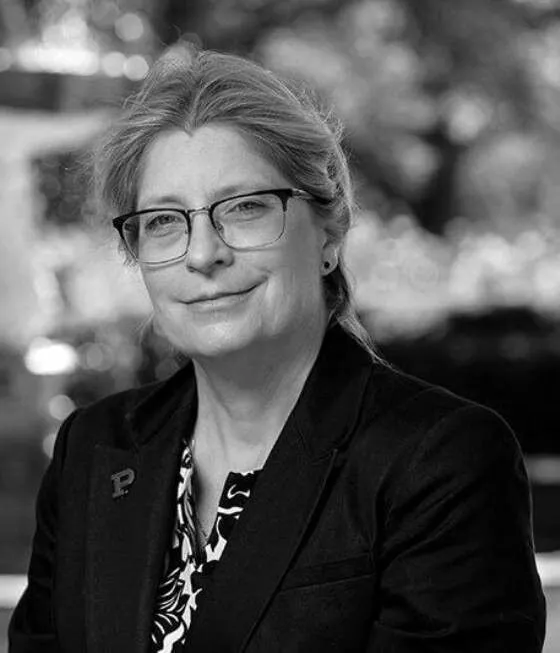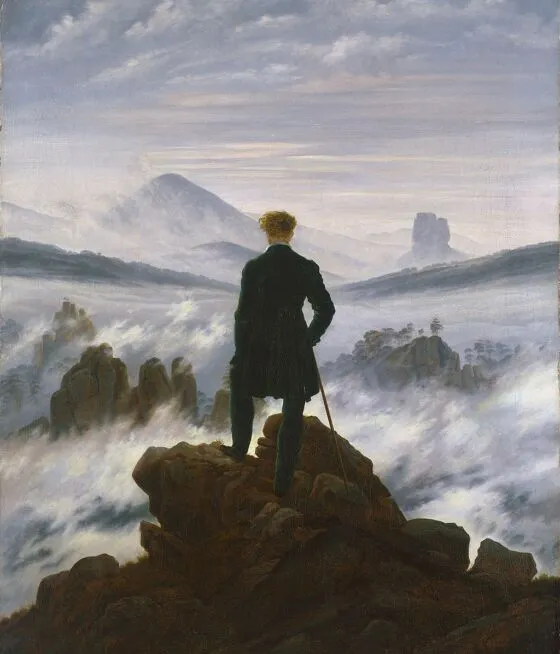
An interview with Melinda Zook
JMC Resident Historian Elliott Drago sat down with JMC Scholar Melinda Zook to discuss the Cornerstone program, transformative texts, and books you need to read right this instant. Dr. Zook is a professor of history at Purdue University and director of its Cornerstone Integrated Liberal Arts program.
Understanding and cherishing our Republic’s ideals
ED: What inspired you to become a historian?
MZ: While I was an English major at George Washington University, I took a lot of courses in other disciplines including philosophy and history. History appealed to me (particularly European history) as something that tied everything else together. I felt it was impossible to understand literature or philosophy without an understanding of the historical context. I went on and did a Master’s in European history; spent a year teaching in Germany, and returned to complete a PhD in early modern British history at Georgetown.
ED: What is your area of specialty, and what sparked your interest in that topic?
MZ: Early modern British history (1500-1800) appealed to me for many reasons. For one thing, there is just so much going on from the Renaissance and Reformation to the emergence of the Empire to the Scientific Revolution, the English Civil Wars, the Glorious Revolution, and on up to Industrialization and Enlightenment. Basically, we’re talking about the time of Shakespeare, Milton, Hobbes, Locke, Newton, Smith, Burke, and Wollstonecraft. I don’t think it gets much better than that! My first book was on radical politics during the late seventeenth century and since then I have centered most of my work on the period between 1660 and 1715, writing on state trials, political poetry, queenship, women, and religion. Admittedly, in the last five years, I have focused more on the world of higher education, but even now I am always compelled to seek out “origin stories,” how and why did this happen?
ED: Tell us about the Cornerstone program at Purdue.
MZ: I can’t tell you about Cornerstone without its origin story. This general education program started as a response to our declining enrollments in the College of Liberal Arts at Purdue. There were plenty of students at Purdue, they just weren’t in our hallways. We went into a fairly deep pit following the Recession of 2008. I was charged with an ‘integrated liberal arts’ program in 2016; its goal was to integrate coursework in the humanities and social sciences into the degree programs of students in Science, Healthcare, Engineering, Business, Technology, and Agriculture.
Not your grandparents’ great books
MZ: Our goals were to give these students a more integrated general education and introduce them to all the things that we value: ideas, historical contexts, literature, art, film, and theatre. But we had to get them through the door. So, we developed a first-year sequence, Transformative Texts I and II, that would fulfill their written and oral requirements.
From the beginning, we insisted that full time faculty teach Transformative Texts. So, faculty in history, philosophy, political science, sociology, musicology, etc., began teaching first year students their communication (writing and speaking) requirements via great books. But these were not your grandparents’ great books.

The goal is to inspire our young people with a love of learning.
MZ: These transformative texts are literature from around the world that changed the world and have the power to change the individual, from the Epic of Gilgamesh to the Federalist Papers to the poetry of Langston Hughes. Great literature, fiction, and nonfiction, was also essential to attracting our full-time faculty. “Teach the class you always wanted to teach,” I tell them. “The literature you love, the activities you know students will love; and take them out of the classroom to the art galleries, the theatre, or even simply a nature walk.” So, we are now (Fall 2024) teaching over 5,000 students with over 100 faculty participating on our West Lafayette and Indianapolis campuses.
ED: What’s the most important lesson you’ve learned from directing the Cornerstone program?
MZ: I have learned a lot, but I will sum it up by saying, I learned how to be a better (more patient and responsive) teacher by teaching general education courses; and a decent leader (encouraging and promoting others) by directing Cornerstone, and, I hope, a better human being (back to patience).
It is both inspiring and humbling to see so many wonderful faculty working to educate and inspire our students. In fact, our Liberal Arts faculty constantly amaze me with their creativity, their willingness to teach challenging texts in fun and interactive ways, the ways they encourage and support each other, and how they go out of their way to help our first-year students.
Leading these faculty and reaching students across the campus often makes me think that I am luckiest person at Purdue.
ED: Which is your favorite transformative text to teach to your students, and why?
MZ: It changes every semester. But I do enjoy teaching Herman Hesse’s Siddhartha a lot. It’s like reading a long, lovely, lyrical poem. And once the students get used to the prose, they too fall in love with it. And I love teaching poetry. I begin every semester with T.S. Eliot’s “Love Song of J. Alfred Prufrock.” I admire how he leads readers in so invitingly, “let us go then you and I,” only to jar them with harsh and unsettling images. I like how he includes concrete, trivial details of daily existence, “toast and tea,” and “coffee spoons,” while, at the same time, the poem speaks to much larger issues: problems of alienation, isolation, and the simple problem of being able to express oneself with authenticity. In short, to allow another human to know you.
ED: What’s one transformative text that everyone needs to read right now?
MZ: There are simply so many books everyone should read! I would say David Copperfield. Everyone in the world must sit down at this moment and read David Copperfield. Not because it’s relevant or world-shattering, but because it’s a beautiful story, funny and poignant, about the human condition. And maybe go from there to Of Human Bondage and Brideshead Revisited.
Elliott Drago serves as the JMC’s Manager of the History Initiative. He is a historian of American history and the author of Street Diplomacy: The Politics of Slavery and Freedom in Philadelphia, 1820-1850 (Johns-Hopkins University Press, 2022).
